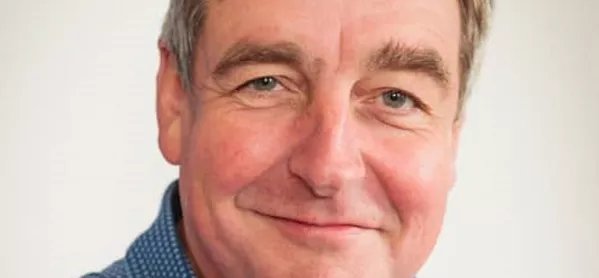- Home
- ‘Pupils can’t be anything they want to be...’
‘Pupils can’t be anything they want to be...’

On BBC Radio 3 this week, breakfast presenter Petroc Trelawny revealed that Josef Strauss, brother and son of the two more famous Waltz Kings, both named Johann, was both a composer and engineer/inventor. In addition to writing that celebrated waltz, Music of the Spheres, the multi-talented Josef also invented Vienna’s first rotating-brush street-cleaner. In 21st-century parlance, one might say that someone so versatile “could have been anything he chose to be”.
Aspiration was arguably an appropriate quality to ponder in the period between those A-level and GCSE results days on which many hopes are fulfilled, some dashed, much parental and teacher sleep is lost, innumerable results-survival guides are published, and much hot air is wasted discussing whether standards are rising or exams are getting easier (or, indeed, made too difficult).
This year we heard few accusations of dumbing down, apart from a shriek from some quarters about “only 33 per cent will secure you a C in maths A level”. Indeed, the loudest complaints were directed at the new Michael Gove-directed style of many exams, GCSE maths in particular being accused by teachers of being unfit for purpose.
Realistic aspirations
Meanwhile, Channel 4 has been running a fly-on-the-wall series called The Secret Teacher, following four millionaire entrepreneurs working undercover as volunteer support staff in secondary schools. They didn’t prosper at school themselves (or there wouldn’t be much of a story) but later found the determination and chutzpah to achieve significant success in their chosen area of business.
They returned to school to see if they could mentor teenagers who appeared as lost and demotivated as they’d been at that age: then, at the carefully orchestrated moment of televisual truth, each used their wealth and influence to offer an opportunity (by fixing apprenticeships, funding courses, promising future jobs) to two of those youngsters, who, notwithstanding their troubles in school, displayed entrepreneurial flair and promise for the future.
The deus ex machina dénouement and the pupils’ incredulous joy made great TV. More important, though, the first two programmes shone a harsh spotlight on the paralysing effects on two schools of the swingeing funding cuts they’re suffering. Both tycoons were visibly shocked by the requirement of staff to work miracles with totally inadequate resources. So in programme two, businesswoman Kate Stewart also promised to fund a support worker to replace one lost to cuts: in the first, media mogul Paul Rowlett pledged £10,000 a year for that school’s run-down business department.
In a further revelation regarding our current bleak reality, the impressive head of Sheffield’s Parkwood E-Act Academy - featured in the programme - acknowledged the fact that our monolithic schools system requires her to push the square pegs that are some pupils through the round holes of GCSE: in some cases impossible for school and child alike, it does neither any favours.
The importance of hard work
I have no problem with such heart-warming stuff: better to help two kids in each school than none, and those generous financial offers will have wider, lasting effects. Nonetheless, one piece of naivety grated, when Kate Stewart told her protégé: “You can be anything you want.” At that point I cried, “Whoah!”, because such talk is dangerous.
Don’t get me wrong. Schools must raise, not dampen, pupils’ aspirations. But none of us - not even Josef Strauss, Kate Stewart or Paul Rowlett - can be anything we want: to kid ourselves that we can is to adopt the shallow instant-fame-and-riches mindset of those Big-Island’s-Got-X-Talent-Bake-Me-Out-of-Here television shows.
We should encourage pupils to recognise their strengths and interests, and be honest about the amount of work and determination required to develop them and fulfil their goals. Ambition’s fine: but recognise that hard slog is required. Malcolm Gladwell’s influential book Outliers reminds us that both the Beatles and Bill Gates put in the necessary (if arbitrary) 10,000 hours’ hard slog developing their skills before achieving their respective phenomenal success.
The Secret Teacher series so far reminds us that schools are still places of hope, despite government’s scandalous underfunding. Nonetheless, hope and aspiration must be tempered: not with defeatism, but with healthy realism, objectivity, counsel and support. Then aspirations, even lofty ones, may indeed be achieved, and ambitions and potential simultaneously fulfilled.
Dr Bernard Trafford is a writer, educationalist, musician and former independent school headteacher. He tweets @bernardtrafford
Keep reading for just £1 per month
You've reached your limit of free articles this month. Subscribe for £1 per month for three months and get:
- Unlimited access to all Tes magazine content
- Exclusive subscriber-only stories
- Award-winning email newsletters



